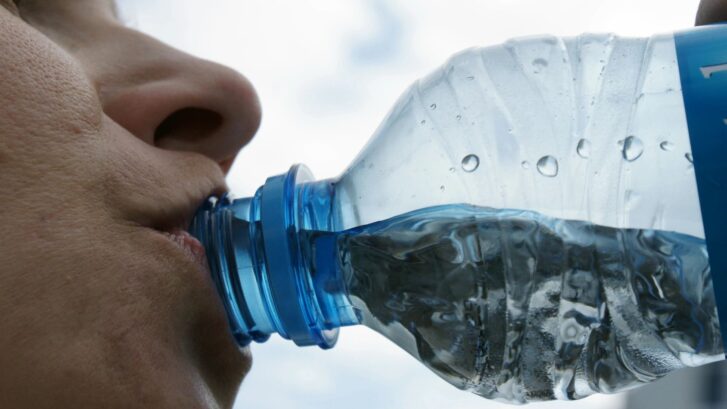The One Thing Your Body Can’t Live Without
How has your general health been lately? Have you been experiencing headaches? Dizziness? Constipation? Weakness? Heart palpitations? Are you feeling generally “blah” for no particular reason?
Of course, we’re all a bit on edge these days, feel more sluggish than usual, what with the coronavirus that has upended our lives, the excessive heat we’ve been experiencing here in Florida, and the frequent threat of hurricanes this time of year. Who wouldn’t be feeling a bit “off” with all these unusual circumstances hitting at once?
But our concierge doctors want to suggest, if you’re experiencing any of the above symptoms, the solution might just be as close as your kitchen faucet.
The body’s need for water
Approximately 60 percent of your body weight is made up of water, and the blood is 90 percent water. Every cell in your body needs it to function. Water regulates body temperature, lubricates and cushions joints, protects your spinal cord and other sensitive tissues, and removes wastes and toxins. It also delivers oxygen throughout the body.
The problem is, here in the United States where clean water is available in most places, we tend to take it for granted. We use it to shower or bathe, to clean and cook with and to water our lawn and plants. Unless we’re engaged in construction work or running a marathon, it’s too often an afterthought.
And that’s a mistake. Insufficient water intake throughout the day can have such an effect on the body that people often think there’s something seriously wrong with them when all that’s really wrong is they’re not getting enough water.
The benefits of water
Water delivers nutrients to every cell of your body, and helps your normal respiratory and waste disposal functions operate normally. It helps keep joints lubricated, reducing friction and pain.
Keeping the body well-hydrated not only thins the blood, helping the heart pump blood more easily, but helps muscles work more efficiently. It helps optimize blood flow to the brain, assisting in the production of mood-boosting neurotransmitters. And it’s key to preventing kidney stones and urinary tract infections.
Water can even help with weight loss. Studies have shown that drinking half a liter of water increases metabolism by 25 percent for up to two hours. It also helps dieters feel fuller, reducing overall calorie intake. And weight loss, of course, lowers diabetes risk.
Even mild dehydration can masquerade as other conditions, such as hunger and fatigue. It can also make your skin look dry and faded, whereas drinking water can plump up skin cells, temporarily minimizing wrinkles.
Correcting chronic conditions
While there can be many medical reasons for many of the most common ailments, sometimes all the body needs is sufficient hydration.
Here are some chronic conditions that may be alleviated simply by drinking enough water:
- asthma
- hypertension
- dizziness
- heartburn
- joint pain
- headaches
- overweight
- inability to concentrate
- constipation
- dry skin
How much you need
So how much water should you drink each day?
Individual water needs depend on many factors, including your health, what kinds of activities you undertake every day, your diet, and where you live. The 8/8 rule (eight eight-ounce glasses of water daily) was actually based on a misreading of one study done in the 1940s.
It turns out that any type of beverage (except sodas and alcohol) can deliver the hydration your body needs. You can also get water from the foods you eat. Watermelon and lettuce, for example, are high in water content.
The Institute of Medicine recommends that women consume a total of 91 ounces (about 2.7 liters) of water a day, and men about 125 ounces a day (3.7 liters). (One liter equals a little over two pints.) If you’re engaging in any type of vigorous activity, especially in hot weather, you should drink more than that, until you no longer feel thirsty.
Thirst, in fact, is your best guide to how much you need to drink each day. If you feel thirsty, you’re not getting enough water. Urine color is another good indication: If your urine is dark yellow, you should drink enough to turn it light yellow or even clear.
If you have any of the symptoms we’ve listed above, of course you should talk with us and receive a proper medical evaluation and treatment. But if they’re mild. intermittent, or you’ve been frustrated in your attempts to relieve them, it may be worth your while to increase your water intake and see whether more water is all you need.

